CHICAGO GUIDES TO ACADEMIC LIFE
The Chicago Guide to Your Career in Science
Victor A. Bloomfield and Esam E. El-Fakahany
The Chicago Handbook for Teachers
Alan Brinkley, Betty Dessants, Michael Flamm, and Cynthia Fleming
The Chicago Guide to Landing a Job in Academic Biology
C. Ray Chandler, Lorne M. Wolfe, and Daniel E. L. Promislow
The Chicago Guide to Your Academic Career
John A. Goldsmith, John Komlos, and Penny Schine Gold
How to Study
Arthur W. Kornhauser
Doing Honest Work in College
Charles Lipson
Succeeding as an International Student in the United States and Canada
Charles Lipson
The Thinking Students Guide to College
Andrew Roberts


HOW TO SUCCEED IN COLLEGE
(While Really Trying)
A Professors Inside Advice
JON B. GOULD
The University of Chicago Press
Chicago and London
Jon B. Gould is a professor in the Department of Justice, Law and Society and at the Washington College of Law at American University, where he is also director of the Washington Institute for Public and International Affairs Research. He is the author of Speak No Evil: The Triumph of Hate Speech Regulation and The Innocence Commission: Preventing Wrongful Convictions and Restoring the Criminal Justice System, the former published by the University of Chicago Press.
The University of Chicago Press, Chicago 60637
The University of Chicago Press, Ltd., London
2012 by The University of Chicago
All rights reserved. Published 2012.
Printed in the United States of America
21 20 19 18 17 16 15 14 13 12 1 2 3 4 5
ISBN-13: 978-0-226-30465-6 (cloth)
ISBN-13: 978-0-226-30466-3 (paper)
ISBN-10: 0-226-30465-5 (cloth)
ISBN-10: 0-226-30466-3 (paper)
ISBN-13: 978-0-226-30467-0 (ebook)
Library of Congress Cataloging in Publication Data
Gould, Jon B.
How to succeed in college (while really trying): a professors
inside advice / Jon B. Gould.
p. cm.
Includes bibliographical references and index.
ISBN-13: 978-0-226-30465-6 (hardcover : alkaline paper)
ISBN-13: 978-0-226-30466-3 (paperback : alkaline paper)
ISBN-10: 0-226-30465-5 (hardcover : alkaline paper)
ISBN-10: 0-226-30466-3 (paperback : alkaline paper)
1. Educational counselingHandbooks, manuals, etc.
2. Counseling in higher educationHandbooks,
manuals, etc. I. Title.
LB1027.5.G635 2012
378.198dc23
2011037291
 This paper meets the requirements of ANSI/NISO Z39.481992
This paper meets the requirements of ANSI/NISO Z39.481992
(Permanence of Paper).
FOR MICHAEL AND EMILY,
from whom I learn more every day
ACKNOWLEDGMENTS

How many people are still in regular touch with their seventh grade social studies teachers nearly thirty-five years after graduating middle school? In my case, I have been nurtured and mentored by several excellent teachers. That social studies teacher, Chuck Meyers, opened my eyes to the world and helped to sharpen my increasing interest in current events. Like all good teachers, he challenged me to see things through different perspectives and encouraged me along a path of additional exploration with a wonderfully dry sense of humor. I often wonder if I would be where I am today without his influence. Fortunately, I have not had to worry.
Im certain I would not have become a good instructor without the involvement and example of several excellent teachers. Besides Chuck, H. W. Perry, Kim Scheppele, and Gerry Rosenberg showed me early on what it meant to be an excellent professor. Each has since become a friend and mentor, and, in fact, I owe my first book to Gerrys careful guidance. So, too, Vic Ferrall, my former boss and past president of Beloit College, has been a shining defender of the liberal arts and an example of what higher education can realize.
Closer to home, my in-laws, Marlene and Haskell Springer, were themselves university professors before retiring, and each has helped me to understand how excellent teaching can be effectively paired with meaningful scholarship. Even more dear, my parents nurtured a sense of inquisitiveness and were always proud observersand even enthusiastic participantswhen they came to see me teach. On one such occasion, a student approached my mother after class. Handing her a copy of his recently graded bluebook, he playfully implored, Cant you tell your son to grade me more leniently? Mom took the exam, quickly read my comments in the back, and responded with a wry smile, It looks like you should be spending more time preparing for your next exam and less time complaining about this one. Apparently, the apple doesnt fall far from the tree.
I have had the privilege of teaching at several institutions as a professor. I am thankful to many colleagues who have helped to improve my teaching and who offered stories and examples that have made their way into this book. Although I am reluctant to single out particular individuals among such a long list of helpful peers, two professors deserve special mention. James Willis and Devon Johnson, my former colleagues at George Mason University and both winners of the universitys teaching award, have been inspirational examples. Although they would modestly claim otherwise, I have learned much from them and consider both to be among higher educations finest teachers.
There are several people who helped to bring this book to fruition. I am grateful to the anonymous reviewers for the University of Chicago Press, whose helpful comments and suggestions improved the manuscript. John Gilliom, my favorite scholar-farmer, provided invaluable support and feedback along the way. I trust he (and his darling youngest daughter) will be satisfied that I mentioned Haverford College in the book. At the University of Chicago Press, I am indebted to Mary Gehl for her excellent and wry editing, to Liz Fischer for help in marketing the book, and to Rodney Powell for years of troubleshooting.
This book owes to the vision and leadership of one personJohn Tryneski, my friend and editor at the University of Chicago Press. I have yet to find a person so universally admired and respected in university publishing as John, plaudits he so richly deserves. I recall sitting with John on a bench at the annual meeting of the Law and Society Association. We were talking about one of my then problem students, a smart and engaging student who didnt seem to understand what his professors were expecting of him. As we got further into the conversation, John turned to me and issued what proved to be a prophetic challengeI wonder if there is a book in this?
Im delighted to report that the student is now a practicing lawyer, and, of course, the book is now done. The latter truly owes to Johns guidance, feedback, support, and occasional accommodations when the rest of my life got in the way. I have learned a great deal from Johnabout how to write and think better, but more importantly, about how to treat others decently. As I say repeatedly in this book, some of the most influential experiences in college take place outside of the classroom. In my own life, my friendship with John Tryneski has been one of the most rewarding.
Next page
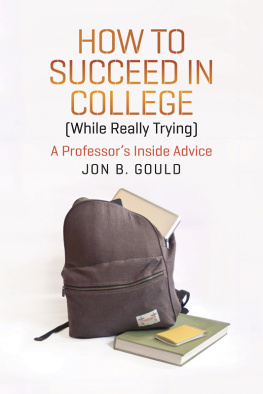

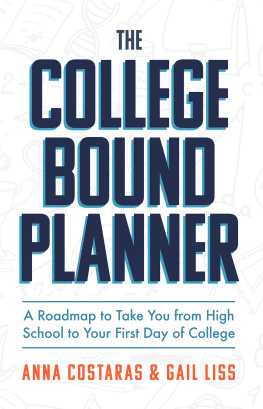
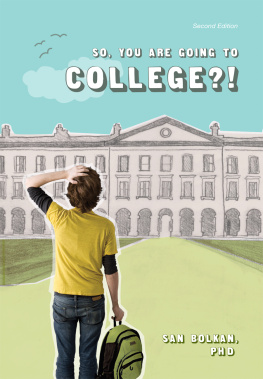
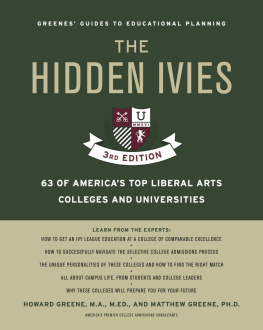
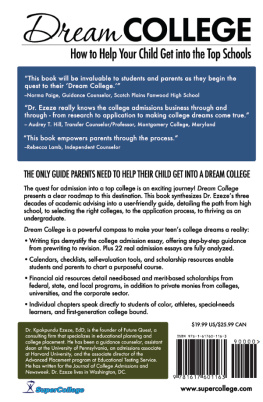
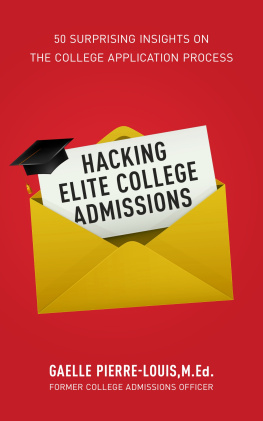
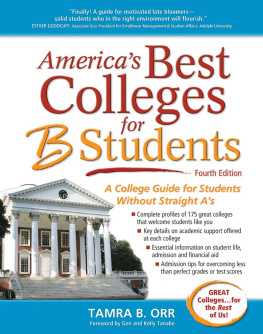
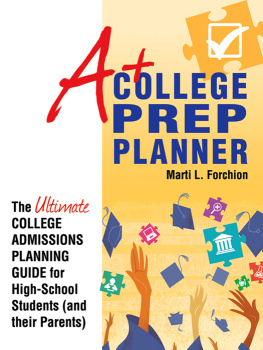


 This paper meets the requirements of ANSI/NISO Z39.481992
This paper meets the requirements of ANSI/NISO Z39.481992